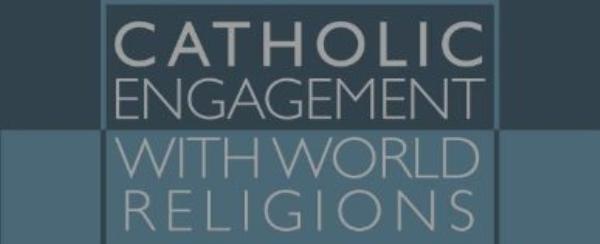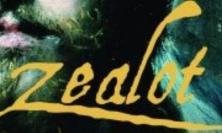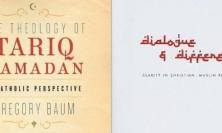Ever since the promulgation of Nostra Aetate in October 1965, the Catholic Church has led the way in what has come to be known as the theology of religions. The Second Vatican Council’s understated yet revolutionary Declaration on the Relationship of the Church to Non-Christian Religions, a mere thirty sentences in the Latin text, has been adopted by many Christian churches which have embraced its principled espousal of what the text calls ‘conversations and collaboration’ with other people of faith.
Nor is it just Christians who have been affected by the Catholic initiative. In recent years two very different ‘interreligious charters’ have appeared, one Jewish and one Muslim. Dabru Emet, a set of brief statements about which Jews and Christians can agree, was published as a full page newspaper advertisement in The New York Times under the signature of some 170 Jewish scholars on 10 September 2000. Very different in style, A Common Word, a letter from 138 Muslim scholars and leaders to Pope Benedict and other leading Christian clerics throughout the world, was the culmination of a process which began in controversial circumstances with the pope’s Regensburg lecture on 12 September 2006.
Like Nostra Aetate itself, neither document had an easy genesis. Both touch upon divisive issues, and have generated intense debate. That is hardly surprising. Religion is a complex phenomenon, rooted in deep and difficult memories and capable of inspiring both amazing virtue and the most appalling acts of violence. ‘Conversations and collaboration’ are never that easy to begin, let alone bring to some sort of successful resolution. The wonder is that such documents exist at all. But the serious attention they all give to what unites and what divides a suffering humanity commands respect, provoking the theological imagination and injecting new energy into debates which have often been undermined by forms of lazy pluralism and reactionary conservatism on all sides.
Nostra Aetate did not emerge in a theological vacuum. It was, first and foremost, a response to the wounds caused by centuries of Christian anti-Semitism and specifically the terrible evil of the Holocaust. Nor can it be separated from other major issues which occupied the Council – about religious freedom and human culture, about Church and mission, about liturgy and revelation – which have as much of a contemporary significance as do the Church’s relations with the Jews. Since its publication – and particularly in recent years as a result of the attacks on the USA by Islamist terrorists – the area has been given a darkly political dimension. The phenomenon of religious plurality now demands more than a repetition of the same theological themes and ideas in a different key. When the other answers back, Christians must respond with integrity but also seek new ways to engage with worlds of religious discourse which can at times seem very ‘other ‘ indeed.
So what precisely is the theology of religions? Another task to be added to the curriculum of seminary formation? A sophisticated form of interreligious apologetics, designed to provide answers to a troublesome other? Or does it have a more substantial, if indefinable, role to play in monitoring the encounter of communities of faith in a dangerous world – a theological guide to whatever makes for the common good in a pluralist world?
The term first emerged in the early 1970s, witnessing to the extraordinarily fertile creativity of Catholic thought about ‘other religions’ which stretches back way beyond Nostra Aetate to the earliest days when church split from synagogue. In the mind of Jacques Dupuis, theology of religions has the specific purpose of responding positively to the truths and values which animate the lives of other people of faith.[1] For Dupuis, walking very much in the footsteps of Karl Rahner, the religions are not purely contingent phenomena; they participate in the Mystery of Christ and therefore have a theological value in their own right. Dupuis’s views proved too controversial for some of his critics and the Congregation for the Doctrine of the Faith began a process which led in due course to the publication of Dominus Iesus, which reaffirmed key aspects of Christological and ecclesiological belief.
That theology of religions raises difficult, controversial and in many ways uncomfortable questions is obvious. A new survey of Catholic engagement with world religions – more a hefty, theological encyclopaedia for inter-faith practitioners – tries to put some shape into the area.[2] Edited by two eminent professors at Rome’s Pontifical Gregorian University, it consists of some 24 separate essays, divided into four major sections. The book begins with the concept of ‘religion’ itself, arguing that the modern usage of the term needs a sensitive critique if dialogue is to be more than a conversation about apparently non-contentious commonalities. This leads on to a number of largely historical articles, tracing the various strands of the Catholic response to other religions from the Patristic period to the contemporary magisterium. The second part is entitled ‘framing a theological consideration of the religions’ and draws attention to those central doctrines of Christianity which must form the bedrock of any responsible dialogue. The third part offers an overview of theology of religions as it has developed since Vatican II. This is complemented by a final section which begins with a theological reflection on dialogue itself and then develops an appraisal of six different religions in their relation to Catholic faith.
Some of these articles are excellent in their depth of focus and insight. The late Cardinal Avery Dulles, for instance, fashions a masterly synthesis of Catholic teaching on the relationship between faith and belief. Gavin D’Costa systematically analyses and deconstructs various approaches to pluralism, drawing attention to those forces in modernity which privilege ‘cultural fashion’ at the expense of the properly dogmatic task of theology. The all too brief ‘appraisal of Buddhism’ by Franco Sottocornola and Maria de Giorgi opens up a number of areas for dialogue while not losing sight of the main challenge which Buddhism puts to the Catholic tradition: how to keep open the question of God. Maurice Borrmans’ article on ‘Islam as it understands itself’ stands witness to another Catholic tradition, the scholarly engagement with other religions which in presenting them with a critical faithfulness has led to an enrichment of Catholic theology itself.
These are just a few examples from a book which tells the story of Catholic engagement with the world religions and sets out the major areas for dialogue. Some of the articles will indeed meet one of the editors’ stated aims – to provide members of other religions with a succinct and theologically nuanced account of Catholic faith. The prevailing impression, however, is that the whole is rather less than the sum of the parts. To an extent this is due to the sheer scale of the book and to a less than helpful format which not only uses double columns (never easy to read at the best of times) but separates text from footnotes; these are to be found not at the end of each article but in a condensed wodge at the end of the book. It is also a pity that the only index refers to authors; it would have been helpful in a book of this nature to have an index of themes and topics. Without it, cross-referencing the discussions is impossible.
But the major weakness in a book which sets out to put some theological substance into interreligious dialogue is that it fails to ask how theology is formed in response to the engagement with the other. In their conclusion the editors draw a clear distinction between theology of religions and interreligious dialogue. They insist that the two are not synonymous – and they are clearly right that any dialogue which fails to be faithful to key Catholic doctrines is going to be inadequate. Then, in seeking to ‘illustrate the method and object of this branch of Catholic theology’, they invoke the Johannine story of the woman at the well – ‘an exchange of ideas in which the Messiah says what he intends to say without any negative animus directed at anyone’.[3] That may be a fair account of the Gospel story and illustrate the ideal with which any interpersonal engagement in pursuit of truth is to be conducted. But the ideal has to be reconciled with a reality in which negativity and suspicion are sometimes very difficult to eradicate. Every serious exchange of ideas is as theological as it is practical – if only because the object of the conversation, the nature of ultimate truth, cannot be separated from what makes us most deeply human. To put it in terms familiar to the Judaeo-Christian tradition, God’s own dialogue with humankind – what Paul VI so beautifully called the ‘dialogue of salvation’ – is not an exchange of pleasantries but a struggle to overcome forgetfulness and sin. Theology is itself dialogical in form; dialogue is loaded with preconceptions which are already theological. The two terms are not that easily distinguished.
Michael Fitzgerald comes closest to bringing them together with his opening statement that theology has to ‘come to grips with empirical reality’ especially the ‘existence of a multiplicity of religions’.[4] This article, full of a personally appropriated wisdom, draws attention to the Trinitarian dimension of dialogue, discussing two Vatican documents which give the activity of dialogue in its various forms a deeply theological quality;[5] wherever dialogue begins and however much it may focus on practical issues, questions about supreme reality and ultimate value cannot be avoided. That is not to say, interjects Fitzgerald, that the object of the exercise is to construct some sort of ‘universal theology’. But it at least allows that any exercise of listening with respect and sincerity to another person of faith is to become attentive to what God’s Spirit may be saying to the Church. His question, ‘How is religious plurality to be understood from a Catholic theological standpoint?’ is not a bit of self-indulgent speculation. It raises a whole raft of ethical, social and political considerations, not least about the dark side of human religiosity, so apparent since 9/11.
Theology, as it is understood in this book, is very much a preparation for dialogue, a reiteration of basic ideas and fundamental themes. What is missing is any reflection on the results of dialogue, on the engagement which develops when the other answers back. While it may seem harsh to criticise a book of this ambition and scope for not covering more, it is strange that no reference is made to more constructive developments within the Catholic Church. One major omission is what has come to be known as Comparative Theology. Its most influential proponent, the American Jesuit Francis Clooney, gets no more than a passing mention.[6] Clooney’s close reading of the texts of other religious traditions from a Catholic perspective is inspired directly by Vatican II’s call in Nostra Aetate to ‘acknowledge, preserve and encourage’ the truths and values of other religious traditions. Comparative theology operates from the fundamental premise that without scholarly and theological attention to what others say of themselves it will be impossible to attend adequately to the contemporary context of religious plurality in which the Word of God is spoken.
The task of theology of religions is as much response as it is preparation. The generous pastoral instinct which runs through all the documents of Vatican II appears in Nostra Aetate, too – but that is not to make the declaration ‘merely’ pastoral. The recovery of the Church’s formative relationship with the Jews marks an enormous shift not just in pastoral but in theological perspective. As David Neuhaus in a masterly article on Jewish-Christian relations since the Council puts it, ‘This document incarnates (perhaps in spite of itself and the pioneers who envisioned it) a reflection on how the dialogue with the Jewish people might be, in a certain sense, a paradigm for dialogue with the other in general.’[7]
In what sense? That is the crucial question. How does the Spirit guide the Church in and through the engagement with the other? For Clooney’s style of theology (and theology of religions is much more a style than any definable form) Nostra Aetate’s call to Christians to engage in ‘conversation and co-operation’ demands not just speaking but listening, not just teaching but learning. Without learning from – and indeed with – the other, Catholic Christians may never understand the ‘signs of the times’, what God may be saying to the Church. Dialogue takes many forms, and people engage in dialogue for different reasons. But like all human activities engagement with the other demands careful thought. Catholic theology, principled discernment of God’s ways with human beings, is nothing if not a response to the God of Israel – not the God of monologic certainty but ‘God with us’, the God who enters so deeply into our human reality that nothing about us, not even our most difficult personal relationships, is left untouched by God’s grace.
The reviewer, Michael Barnes SJ lectures in the Theology of Religions at Heythrop College, University of London. He is author ofTheology and the Dialogue of Religions (CUP, 2002).
![]() Find this book on the Orbis Books web site
Find this book on the Orbis Books web site
[1] See especially his magisterial Toward a Christian Theology of Religious Pluralism, New York: Orbis; 1997, which remains the best introduction to the area.
[2] Karl Josef Becker and Ilaria Morali, Catholic Engagement with World Religions, New York: Orbis; 2010.
[3] Ibid p 510.
[4] Ibid p 383.
[5] ‘The Attitude of the Church Towards the Followers of Other Religions’, published by the Secretariat for Non-Christians, 1984. Text in Bulletin of the Secretariat, 19/2; pp 126-141. ‘Dialogue and Proclamation: Reflections and Orientations on Interreligious Dialogue and the Proclamation of the Gospel of Jesus Christ’, published jointly by the Pontifical Council for Inter-Religious Dialogue and the Congregation for Evangelization of Peoples, 1991. Text taken from Bulletin, 26.2; pp 210-50.
[6] For an excellent introduction to Comparative Theology and brief overview see Francis X Clooney, Comparative Theology: Deep Learning cross Religious Borders, Chichester: Wiley-Blackwell; 2010. See also the entry by Clooney in John Webster, Kathryn Tanner and Iain Torrance(eds), The Oxford Handbook of Systematic Theology, Oxford University Press, pp 653-68.
[7] Catholic Engagement, p 406.






